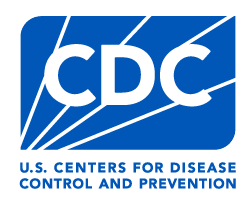Interview Guide: Family/Close Friend (Follow-Up Intervie
[OS] CDC/ATSDR Formative Research and Tool Development
Attachment 5_DHQP_Family Follow-Up Guide_4.16.25
[NCEZID] In-Depth Interviews about Infection Prevention and Control Practices in Long-Term Care Facilities
OMB: 0920-1154

 WS-CDC
DHQP Interview Guide
WS-CDC
DHQP Interview Guide
Form Approved
OMB Control No.: 0920-1154
Expiration date: 03/31/2026
Long-Term Care Facility (LTCF) Infection Prevention Measures
Division of Healthcare Quality Promotion (DHQP)
Discussion Guide for Follow-Up Interviews with LTCF Resident Family Member
March 25, 2025 Final
INTERVIEWER NOTE: IF IDI IMMEDIATELY FOLLOWS PAIRED INTERVIEW WITH LTCF RESIDENT, BEGIN AT SECTION 2: ASSESSMENT AND CONCERNS
Introduction; approx. <2 minutes
Hello! Thank you for speaking with me again today. As a quick refresher, my name is _____ and I am and independent researcher.
Although you may already be aware of the details of this conversation, I want to provide a few reminders:
The sole funder of today’s discussion is the Centers for Disease Control and Prevention—CDC.
Our conversation today will focus on a few follow-up questions that are similar to what was discussed during our last conversation with your family member who is in a long-term care facility.
I’m a professional researcher, not a CDC employee or a subject matter expert on health topics. My role is to learn from you during our conversation over the next 15 minutes.
There are no wrong answers here. I am simply interested in your honest opinions and experiences. However, if you do not want to answer a particular question, you do not have to.
Because privacy is important, I’m going to share our Privacy Policy again.
I will protect your privacy for today’s discussion, and nothing you say will be reported in association with your name. We will use first names only during the conversation. You may choose to use a nickname or any other name you prefer.
Your participation is voluntary—you do not have to answer anything you are uncomfortable with.
I am audio- and video recording for transcribing of our discussion. Because I am having several discussions like this one, it is important for me to have an accurate record of today’s conversation.
Assessment and Concerns; approx. 6 minutes
How do you feel about the infection prevention measures practiced in your loved one’s care community? CLARIFY: As a note, I will refer to anyone who lives in, works in, or visits your loved one’s long-term facility as their “community.”
How confident are you that the community is doing enough to protect residents?
Do you feel like these measures have any impact on quality of life and comfortability? Tell me about that.
When you visit your loved one in their community, is there anything you do to…
…protect yourself against germs or prevent infection?
…protect your loved one against germs or prevent infection?
Has your loved one ever expressed any feelings about the infection prevention measures in their community? What have they shared, or what feelings did they express?
Have you had any infection-related concerns for your loved one in their community? What concerns?
Have you had any infection-related concerns for yourself when visiting in the community? What concerns?
Has anything been done to address your concerns?
Has your loved one expressed any infection-related concerns that we didn’t discuss before?
Sometimes long-term care facilities implement protocols for residents that involve isolation. This may be called “Transmission-Based Precautions,” “Enhanced Barrier Precautions,” or “Enhanced Barrier Precautions” and can involve things like gloves and gowns used by staff to care for residents. Have you and your loved one experienced that before?
How did that impact your loved one and you yourself?
What did you both do differently when your loved one was in isolation?
Conversations and Decisions; approx. 2 minutes
Did you ever have conversations with your loved one about germs or infection prevention in long-term care facilities prior to moving to the community? What did you talk about?
Have you had conversations with your loved one about germs or infection prevention since moving in? What have you talked about?
Have you and your loved one made any joint decisions or actions related to infection prevention? What kind?
Information; approx. 5 minutes
How does the community generally share information and updates with your loved one? PROBE: method, frequency
Are these same methods also used when communicating information and resources about infection prevention, or is that different?
Has the community provided you with any information or guidance about how to prevent infections or what the community itself is doing? What did they share?
How was it shared?
Did a staff member at the community talk about this? Did a healthcare provider?
What would you like to see improved about that information?
Have you researched on your own infection prevention methods intended for your loved one?
If yes, what sources did you rely on for this?
What other information would you like to have related to infection prevention at long-term care facilities, including the one where your loved one lives?
What format, and how would you like to receive it? PROBE: emails, printed materials, meetings
Thank you for your insights. We’ll wrap up with a final question.
Is there anything you would want to change about how the community handles infection prevention? If so, what would that be?
INTERVIEWER THANK AND DISMISS
Public reporting burden of this collection of information is estimated to average 15 minutes per response, including the time for reviewing instructions, searching existing data sources, gathering and maintaining the data needed, and completing and reviewing the collection of information. An agency may not conduct or sponsor, and a person is not required to respond to a collection of information unless it displays a currently valid OMB Control Number. Send comments regarding this burden estimate or any other aspect of this collection of information, including suggestions for reducing this burden to CDC/ATSDR Reports Clearance Officer, 1600 Clifton Road NE, MS H21-8, Atlanta, Georgia 30333; ATTN: PRA 0920-1154
| File Type | application/vnd.openxmlformats-officedocument.wordprocessingml.document |
| Author | Laura Koehler |
| File Modified | 0000-00-00 |
| File Created | 2025-07-01 |
© 2026 OMB.report | Privacy Policy